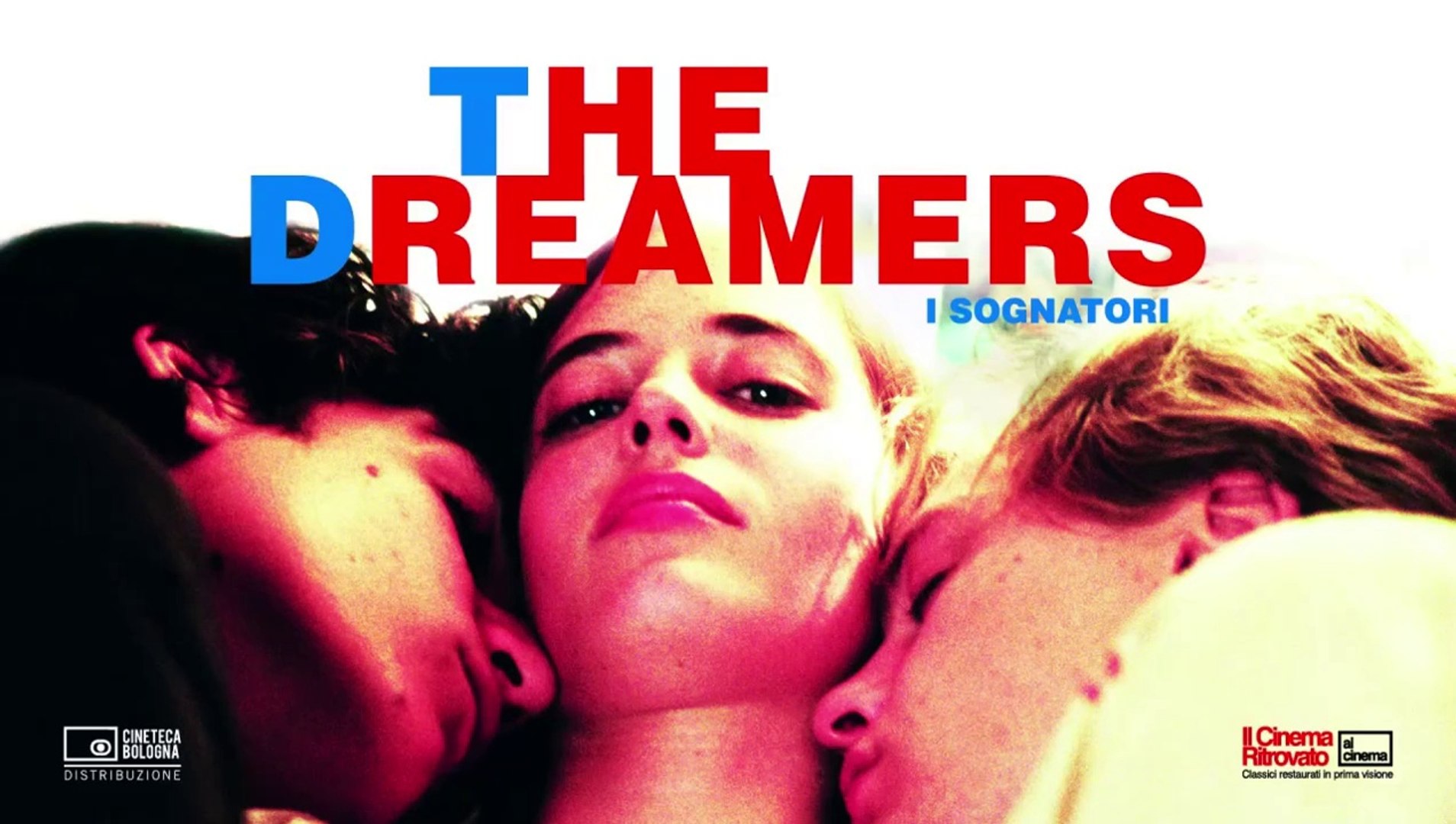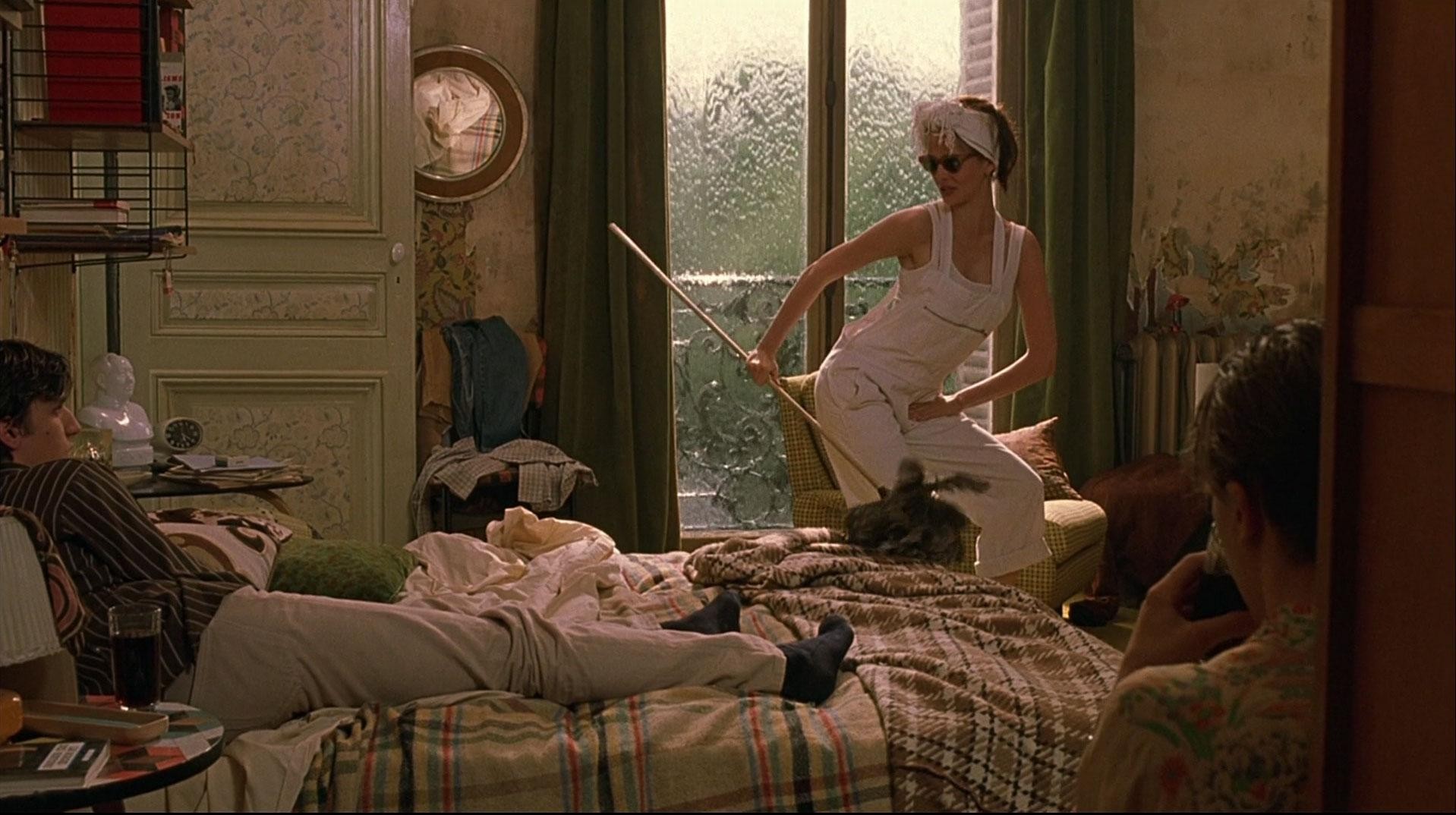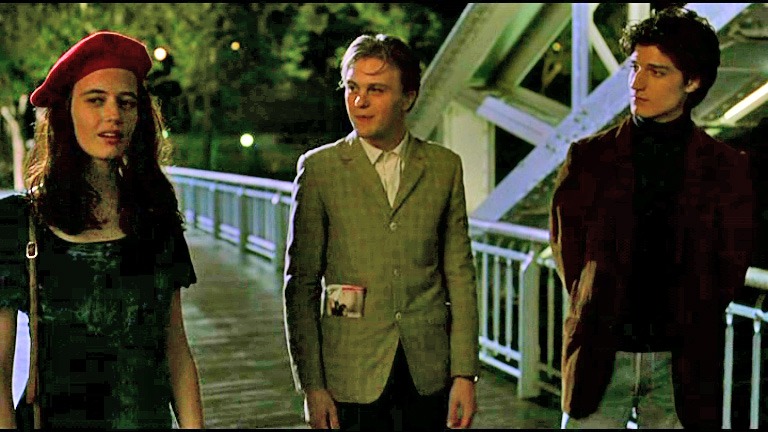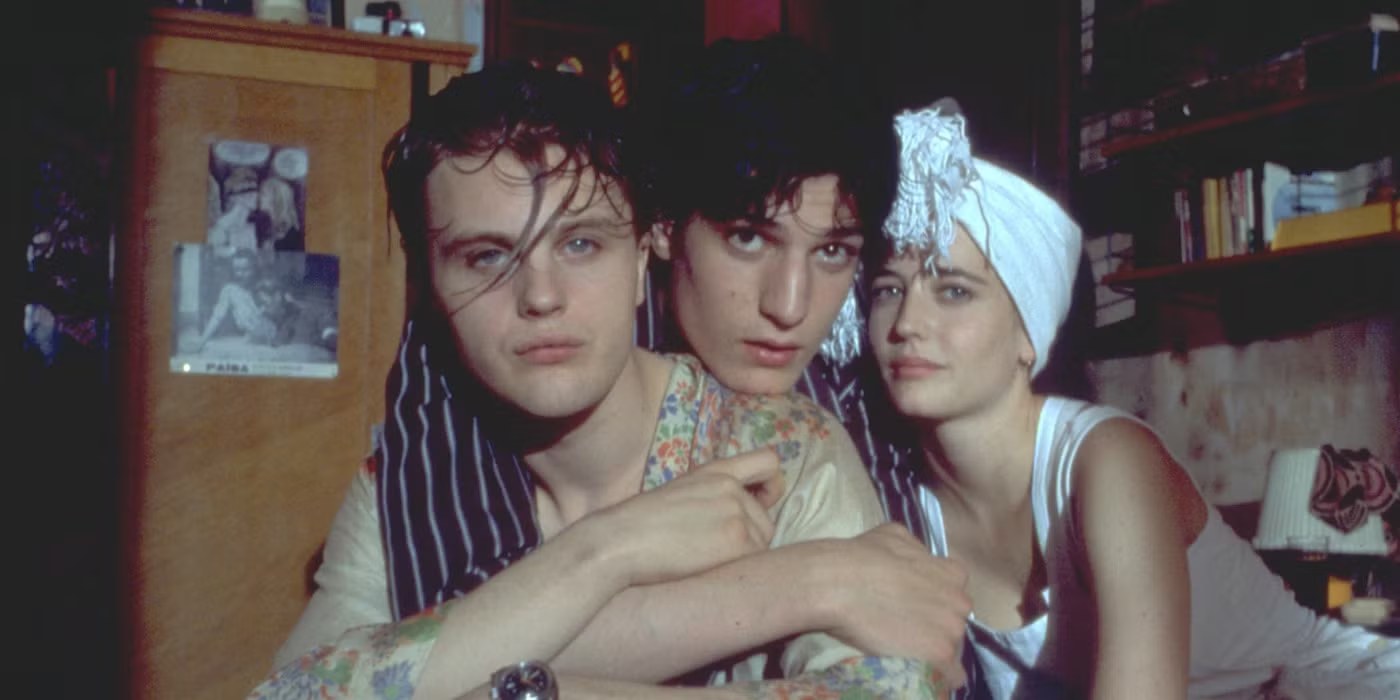The Dreamers (2003)

The Dreamers (2003), directed by Bernardo Bertolucci, is a captivating drama that explores themes of youth, rebellion, and the complexities of love and sexuality. Adapted from Gilbert Adair’s novel The Holy Innocents, the film delves into the lives of three young individuals living in Paris during the 1968 student protests. With a compelling blend of romance and intellectualism, Bertolucci crafts a provocative story that challenges societal norms and the boundaries of personal freedom.
Set against the backdrop of the May 1968 protests in Paris, The Dreamers follows Matthew (Michael Pitt), an American exchange student who becomes involved with twins Isabelle (Eva Green) and Theo (Louis Garrel). The three form an intense, somewhat unconventional bond when Matthew is invited to stay with the twins after meeting them at a protest. The film explores their isolation from the world around them and their deepening emotional and sexual entanglements, all set against a tumultuous political landscape. The story unfolds with an undercurrent of intellectual discussions about cinema, politics, and personal identity, making it a rich exploration of the era’s youthful spirit.
The film’s plot is as much about the intellectual and emotional dynamics between the characters as it is about the passionate and often taboo relationships they form. The twins, Isabelle and Theo, are deeply connected, sharing a bond that is at once innocent and charged with sexual tension. Their relationship with Matthew further complicates matters, as they each seek to define their identities in a world that feels both exciting and oppressive. As the trio grows closer, they engage in a series of increasingly daring and provocative acts that challenge the boundaries of social propriety, raising questions about the nature of intimacy, consent, and personal freedom.
One of the most striking aspects of The Dreamers is its exploration of cinema and its role in shaping the characters’ lives and identities. The film is steeped in references to classic French films, particularly the works of Jean-Luc Godard, and the twins’ obsession with cinema becomes a central theme. Their love for films reflects their desire to escape the confines of reality and experience a world where emotions and ideas are heightened, much like the passionate and idealistic nature of youth. The trio’s discussions about films serve as a metaphor for their own struggles with identity, desire, and rebellion.

Eva Green’s performance as Isabelle is particularly memorable, as she brings depth and complexity to a character that is both naive and dangerously seductive. Her portrayal of Isabelle’s journey from innocent curiosity to sexual self-discovery is both alluring and unsettling. Michael Pitt’s portrayal of Matthew, the outsider who becomes entangled in the twins’ world, adds an additional layer of emotional depth. He navigates the shifting dynamics between the characters with a mix of fascination and confusion, mirroring the audience’s own reactions to the increasingly surreal situation. The performances of Louis Garrel as Theo further solidify the film’s emotional and intellectual depth, as he embodies a character who is both idealistic and emotionally distant.

The cinematography in The Dreamers is equally striking, with Bertolucci using the visual language of cinema to enhance the film’s themes. The use of intimate close-ups, lighting, and vibrant colors creates a sense of closeness between the characters while also emphasizing the world of fantasy and dreams that they inhabit. The dreamlike atmosphere is heightened by the frequent references to films and the characters’ constant engagement with cinema, which blurs the line between reality and fantasy. The film’s visual style perfectly complements its themes of idealism, desire, and rebellion, creating a world that is both intoxicating and alienating.

In conclusion, The Dreamers is a daring and thought-provoking film that explores the complexities of youth, love, and identity against the backdrop of political unrest. Bertolucci’s direction and Gilbert Adair’s script provide a narrative that is both intellectually engaging and emotionally charged, while the performances from the cast bring depth to their characters’ emotional struggles. The film’s blending of intellectual discussion, sexuality, and rebellion makes it a unique and unforgettable exploration of the ideals and contradictions of youth. Through its provocative storytelling, The Dreamers challenges the viewer to confront their own perceptions of love, freedom, and the boundaries between fantasy and reality.











